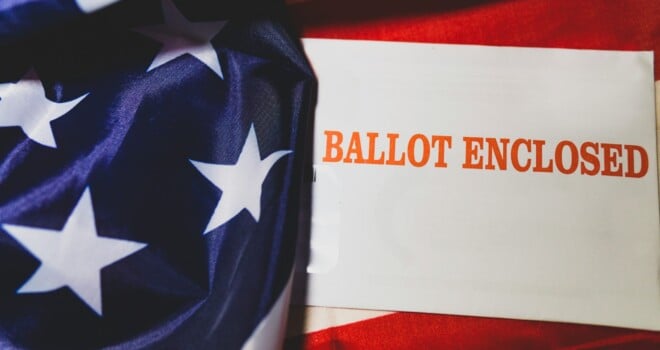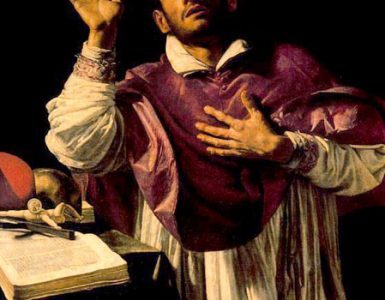While many Catholics have already cast early votes, others are indicating they will sit it out this election. Abstaining, examination of social justice issues, and voting for a third party are considerations for Catholic voters. Our bishops remind us that, because we are people of both faith and reason, we are called to witness to the dignity of human life, defend marriage, and promote the well-being of all. We currently have before us an incredible opportunity to advance the common good, limit evil, and permeate culture with beauty, truth, and goodness.
Catholics Can Determine the Outcome of the Election
Catholics comprise one of the largest voting blocs in the nation and have the potential to determine the outcome of this election. While some may deem their vote insignificant, we are called to engage in the public square and vote (see Catechism of the Catholic Church, 2240). The U.S. bishops add, “Love compels us to ‘go into all the world and proclaim the good news to the whole creation.’ (Mk 16:15) … This ‘mandate’ includes our engagement in political life.”
Faith is personal but never private, and if it fails to inform every dimension of our lives, it is not true faith. Had the disciples remained hidden in the Upper Room, where would the Church be today? Instead, the Holy Spirit strengthened them to emerge from the safety of the Upper Room and permeate the culture with the truth of Christ. So, too, are people of faith now called to move beyond prayer, engage in the public square, and vote for the candidate who will best advance the common good.
In a document entitled On Our Common Responsibility for the Common Good (2004), Cardinal Raymond Burke states, “The Catholic who chooses not to vote at all when there is a viable candidate who will advance the common good, although not perfectly, fails to fulfill his or her moral duty, at least, in the limitation of a grave evil in society” (par. 43).
Voting to Limit Evil
Another reason for abstention among Catholic voters includes the assertion that neither candidate is worthy. While we fervently pray for our political leaders, lay faithful awaiting candidates who perfectly uphold the moral law may likely never cast another vote.
In applying an example from Pope St. John Paul II (Evangelium Vitae, no. 73c), Cardinal Burke affirms, “A Catholic who is clear in his or her opposition to the moral evil of procured abortion could vote for a candidate who supports the limitation of the legality of procured abortion, even though the candidate does not oppose all use of procured abortion, if the other candidate(s) do not support the limitation of the evil of procured abortion.” He explains:
A Catholic may vote for a candidate who, while he supports an evil action, also supports the limitation of the evil involved, if there is no better candidate. For example, a candidate may support procured abortion in a limited number of cases but be opposed to it otherwise. In such a case, the Catholic who recognizes the immorality of all procured abortions may rightly vote for this candidate over another, more unsuitable candidate in an effort to limit the circumstances in which procured abortions would be considered legal. Here the intention of the Catholic voter, unable to find a viable candidate who would stop the evil of procured abortion by making it illegal, is to reduce the number of abortions by limiting the circumstances in which it is legal. This is not a question of choosing the lesser evil, but limiting all the evil one is able to limit at the time.
Electability
Electability is critical and bears important weight when casting a vote. In this election, there are only two candidates currently capable of a presidential victory. Not only can the next president advance legislation that best protects life, the common good, and religious freedom, but may likely nominate U.S. Supreme Court justices who will shape the future nation our children and grandchildren inherit and the cultural battles they will have to fight.
Third-party voting and write-in candidates who have no real chance of victory reduces the possibility of advancing our values in society as well as the appointment of future Supreme Court justices who would do the same.
Prioritizing Social Justice Issues
Another consideration for Catholic voters includes prioritization of issues on the whole-life spectrum—policies dealing with things such as pro-life, immigration, healthcare, and assistance for the needy, for example.
The Church is clear, however, that “the right to life … makes all other rights possible.” Echoing Pope St. John Paul II in his apostolic exhortation, Christifideles Laici, “the right to health, to home, to work, to culture, is false and illusory if the right to life, the most basic and fundamental right and the condition for all other personal rights, is not defended with maximum determination.”
Immigration and universal healthcare are of no consequence to a person killed in the womb and thus denied the right to grow up to immigrate or access that healthcare. Pro-life voters are not single-issue voters, but ones who prayerfully and rightly order issues on the whole-life spectrum.
They are mindful that the right to be born is foundational for subsequently advancing the other important social justice issues about which they are also deeply concerned.
Our Call from the Upper Room
As citizens of both heaven and earth (see Phil. 3:20; CCC 2796), let us follow the disciples from the Upper Room, beyond prayer, and into a culture often hostile to the gospel message. Archbishop Charles Chaput states, “If we really love this county, and if we really treasure our faith, living our Catholic beliefs without excuses or apologies, and advancing them in the public square are the best expressions of patriotism we can give to the nation” (pg. 219).
Our current struggle is not against flesh and blood but against the spiritual forces of evil in the heavenly realm (see Eph. 6:11-12). Rooted in prayer, let us vote with a well-formed conscience, consonant with the truth of Christ, for one of the two electable candidates before us: the one who will best advance the common good, limit evil, and help return this nation to the folds of Mary’s mantle. The choice is clear.
Photo by Joshua Woroniecki on Unsplash












